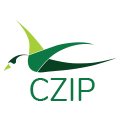The foreseen actions: strengthen transnational monitoring, strengthen prevention and mitigation of damage, active community and stakeholder participation, experimental coexistence initiatives
Improve coexistence between humans and large carnivores such as lynxes, wolves, bears and jackals and strengthen their protection to protect the biodiversity of the territories is the objective of the European project “4PETHABECO-“Strengthening cooperation to address socio-environmental challenges of Eusair flagship”. Project is co-financed by the European Union under the Interreg IPA ADRION programme, supported by the European Regional Development Fund (ERDF) and Instrument for Pre- Accession Assistance (IPA) and led by the University of Udine (Italy) with the participation of ten partners from eight states in the Adriatic-Ionian area: Albania, Croatia, Greece, North Macedonia, Montenegro, Serbia and Slovenia. The activities will take place in the areas – North Eastern Alps, Dinaric Alps, Pindus – and in the areas of large carnivores. A total of over 4000 wolves and bears and more than 200 lynxes live in these areas.
To achieve the expected results, the project will focus on: strengthening monitoring and shared data collection at a transnational level, strengthening strategies and measures to prevent and mitigate the risk of damage by animals, active involvement of local communities and stakeholders – farmers, breeders, hunters – and on experimental initiatives for land management and coexistence between man and wildlife.
Objective. The initiative was created to improve cooperation on nature conservation, with particular attention to the aspects of coexistence between human activities and large carnivores and fauna in general. Furthermore, to improve ecological connectivity, i.e. to act on areas of potential coexistence between humans and wild animals, and allow the movements of fauna, the project aims to strengthen the network of green infrastructures, such as green bridges or underpasses on motorway infrastructures, and the safety of crossing points on irrigation canals.
Benefits. The project offers an opportunity to apply innovative strategies in the management and conservation of nature. It will allow to perfect monitoring systems for large carnivores and identify strategies for improving coexistence between wildlife and human activities. It will also lead to enhanced strategies for mitigating and preventing the risk of harm and negative interactions by animals.
The actions. To implement the project three main activities will be pursued. First, collaboration will be strengthened to harmonize monitoring procedures and techniques. Furthermore, it will increase transparency in the acquisition and interpretation of data to improve knowledge on the distribution and ecological role of large carnivores. This is also thanks to a common digital platform and database that will promote their protection and the conservation of their habitats.
Secondly, the adoption of better participatory processes will be promoted to aid the innovative management of the animals’ living environment. A necessary action to address the growing challenges associated with the social conflicts that are generated in the areas of coexistence between large carnivores and humans, but also the cultural and environmental impacts.
The third aim is to create opportunities for local communities, such as a network of “Living Labs”. That is, living laboratories in which communities and stakeholders actively participate in research and management activities. A process that will improve widespread knowledge on large carnivores and the restoration of green infrastructures and eco-corridors for fauna, as well as lay the foundations for the definition of shared strategies for coexistence.
The partners. Working on the project together with the lead partner University of Udine are: the University of Belgrade (Serbia), the “Oikon” Institute of Applied Ecology of Croatia; the civil society for the protection and management of wild life and the natural environment the Center for Protection and Research of Birds (Montenegro), “Arcturos” (Greece); the Scientific Research Center of Koper (Slovenia); The Venetian Cluster (Italy), Igea Mak Ltd. (North Macedonia); the Protection and conservation of the natural environment – PPNEA (Albania); the Slovenian Hunters Association.
The development of the project website is underway, and until then you can visit for more information about the program
https://www.interreg-ipa-adrion.eu
INSIGHTS ON THE PROJECT
4PETHABECO
Strengthening cooperation to address socioenvironmental challenges of EUSAIR flagship PROTECTION AND ENHANCEMENT OF NATURAL TERRESTRIAL HABITATS AND ECOSYSTEMS
Duration: 01/09/2024 – 31/08/2027
Total budget: € 741. 264, 63
European Regional Development Fund (ERDF): € 593. 011, 69
Project partners
LP 1 University of Udine, UNIUD, Italy
PP2 University of Belgrade, FBUB, Serbia
PP3 OIKON Ltd.- Institute of Applied Ecology, OIKON, Croatia
PP4 ARCTUROS – Civil Society for the Protection and Management of Wildlife and the Natural Environment, ARCTUROS, Greece
PP5 Science and research Centre Koper, ZRS KP, Slovenia
PP6 Venetian Cluster, VHC, Italy
PP7 Centre for Protection and Research of Birds, CZIP, Montenegro
PP8 Igea MAK Ltd., IGEA MAK, North Macedonia
PP9 Protection and Preservation of Natural Environment in Albania, PPNEA, Albania
PP10 Hunters Association of Slovenia, LZS, Slovenia
Summary of the project
The 4PETHABECO overall objective is to test solutions and innovative management approaches to protect and restore terrestrial habitats and populations of large carnivores, also envisaging the restoration of green infrastructure and eco-corridors. Indeed, it aims to address humans- large carnivores’ conflicts and straighten capacity building. The strategic long-term goal is to enhance collaboration in AIR to support EUSAIR flagship PET HAB ECO (pillar 3 Environmental quality) full implementation.
State of progress
The project is in the first implementation period
Main outputs
-Digital solutions tools / platform for exchange of knowledge, data and foster citizen science projects regarding large carnivore monitoring
-Strategy and action plan for innovative large carnivore habitat management to improve coexistance
-Demonstrative pilot action on reducing the impact of domestic animals
-Living labs with digital tools for fostering community-based knowledge and innovative co-creation


